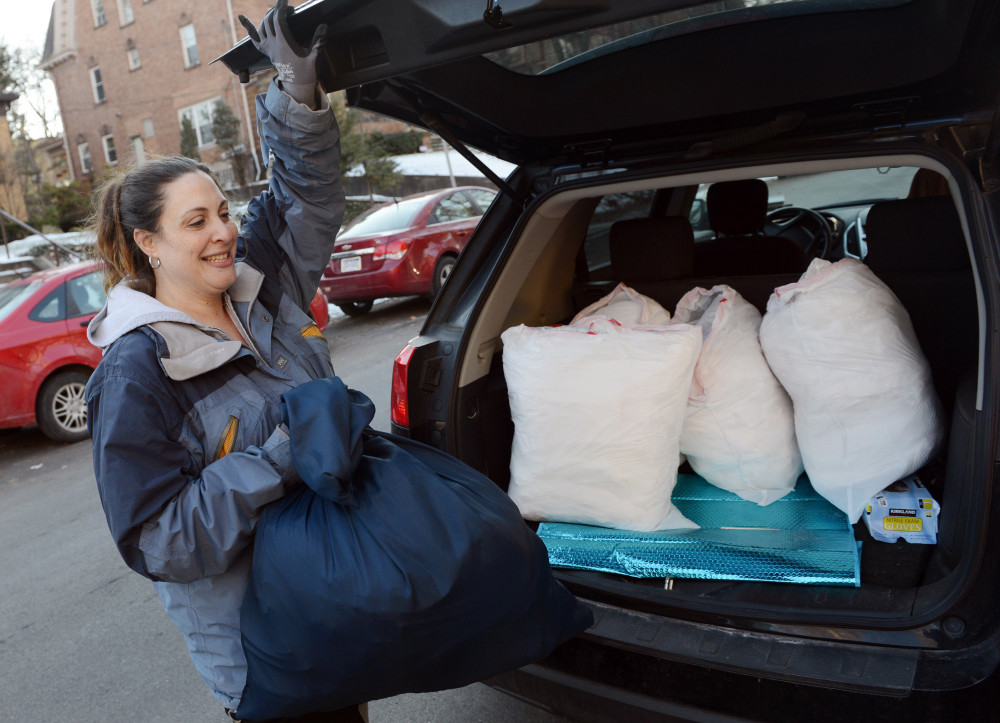By Gordon Dickson
Fort Worth Star-Telegram.
Businesses that specialize in providing people with smartphone-based, on-demand services — such as Uber, the popular vehicle-for-hire company — may be missing out on a massive chunk of their potential audience.
Moms.
Pregnant women and mothers of young children are intensely interested in smartphone applications that provide services in the “shared economy,” according to a recently released study. Yet many of the moms are unfamiliar with the wide range of apps already out there.
For example, there are companies such as TaskRabbit, which connects people with household services such as cleaning and packing, and Rent the Runway, which offers fashionable clothing for rent. Those companies are widely used in certain cities, but hardly known in others.
On Wednesday, a service known as Favor will expand into Arlington, Frisco and McKinney. Favor offers on-demand food delivery from essentially any restaurant in its service area, with 3,500 employees and an average delivery time of 35 minutes. Favor is already available in Fort Worth, Dallas and many other Texas cities, as well as Boston, Miami, Nashville, Toronto and Washington, D.C.
A major barrier many of these companies face is getting their name out to the largest potential audience, said Julie Michaelson, head of global sales at BabyCenter, a pregnancy and parenting online site that commissioned the study.
“What we see here is a tremendous market opportunity for apps that make life easier for moms,” Michaelson said. “Some of these services also offer marketing potential for brands that want to reach moms by aligning with apps that can make their busy schedules a bit easier to manage, since having these services on your smartphone is like having a concierge in your pocket.”
What the study found
The report is titled U.S. Mobile Mom 2015: The Sharing Economy. For the study, BabyCenter interviewed women age 18 or older in the 10 largest U.S. metro areas. The women were either pregnant or already had at least one child.
Participants were asked how familiar they were with apps that offer services such as taxi or car service, help with parking, clothing rental, vacation room or home rental, grocery shopping and home cleaning.
Overall, in San Francisco 56 percent of respondents were familiar with most or all of the on-demand apps mentioned in the study. More than half of women in New York and Los Angeles were widely aware of the apps, too.
But it was a different story in other metro areas. In Dallas-Fort Worth, 39 percent of participants reported being familiar with most or all of the apps — a low score, but still higher than the 33 percent of respondents nationwide.
The study showed that 24 percent of North Texas moms had used a taxi or ride-sharing service such as Uber or Lyft, and another 19 percent were considering using them. But 11 percent were unaware of the apps.
The lack of awareness was even more dramatic in other categories. For example, when it comes to beauty services — such as a StyleInGo makeup artist or hair stylist who will come to your house — 60 percent of moms nationwide were unaware such a service exists. (Dallas-Fort Worth was better than the national average in the beauty category, with only 52 percent of respondents saying they were unaware of the service.)
In the Metroplex, 57 percent of moms say a lack of familiarity is the main reason they don’t use app-based services. In Chicago, the percentage was 61 percent, and in Washington, D.C., it was 60 percent.
Moms who took part in the study said that, given the chance, they would most frequently use apps for house cleaning services. Other services they would like to use apps for included packing and moving, yardwork, grocery shopping, laundry and errand-running.
Aiming at mom market
Brenda Stoner of Plano had moms in mind when she founded a company known as Pickup LLC. The company’s slogan is “Good Guys with Pickups on Demand.”
It works like Uber but is aimed at people who need to haul something but don’t have a pickup. Customers use their phones to order not only a pickup, but a pickup owner — usually a physically fit man — who is willing to load and unload the goods, and even take them into the house.
For Stoner, the key is hiring drivers with not only a spotless criminal record but also an affinity for helping others without the expectation of getting something significant in return. Most of her drivers are military veterans and/or firefighters, she said.
“We’re very selective. I’m a single mom. I wouldn’t send anyone into a [customer’s] home I wouldn’t send into my own home,” Stoner said in a recent interview. “Having somebody trustworthy was job one.”
More of these concierge services can be expected in the coming years, said Michael Sherrod, a publishing and web-based businessman now serving as the William M. Dickey Entrepreneur-in-Residence at TCU.
Not only are the services desired by a wide swath of the public, but more Americans are finding they like working as freelancers for the services — in essence, being your own boss and setting your own schedule — rather than working as a full-time employee.
By 2020, an estimated 40 percent of laborers in the United States are expected to be freelance, up from 34 percent today, according to a May study by a business newsletter known as Requests for Startups.
If the results of BabyCenter’s study are any indication, many of those concierge services would be wise to aim their products at moms and moms-to-be.














































































































































































































































































































































































